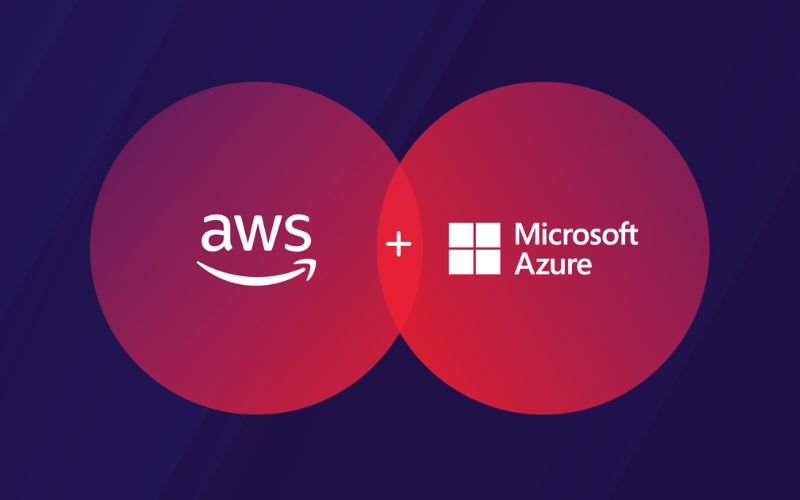Looking for a job with an appealing CompTIA Linux+ salary? In this guide, IT Exams covers everything you need to know about the average salary range for Linux+ certified professionals, factors that impact salary, job roles, and more. Discover what you can expect to earn with a Linux+ certification and plan your career accordingly.
What Is CompTIA Linux+?

Linux is an open-source platform that is comparable to the UNIX operating system. It makes a variety of gadgets possible. Almost every business platform, from banking apps to social networking sites, runs on the Linux operating system.
Because of its open-source compatibility, almost all supercomputers and cloud servers run Linux, as do various other devices in your home and business, such as firewalls and routers. Because the operating system is open source, it is simple for another software developer to modify the source code, allowing for the creation of the desired software.
Linux+ presents a step-by-step presentation of key commands, tools, and configuration choices that an IT professional should be familiar with prior to starting on the job.
What Skills Does CompTIA Linux+ Cover?

Before we go into each of these employment responsibilities, let’s take a look at how CompTIA Linux+ prepares you for them. CompTIA Linux+ is the only job-focused Linux certification that covers the newest basic abilities sought by hiring managers when compared to other professional certifications.
CompTIA examinations are created through a rigorous process in which experts collaborate to determine what knowledge, skills, and abilities are necessary to execute certain job responsibilities. As a result, you can be confident that the subjects covered by CompTIA Linux+ are relevant to what Linux professionals need to know today.
Individuals who pass the CompTIA Linux+ exam will be able to do the following:
- Troubleshoot system characteristics and processes, as well as user, application, and hardware problems.
- Learn about the best practices for permissions, authentication, firewalls, and file management.
- Manage software and services, explain server roles, job scheduling, and Linux device use and operation
- Configure kernel modules, network settings, storage, cloud, and virtualization technologies.
- Execute basic BASH scripts, use Git for version control, and orchestrate processes.
Why Is Linux+ So Popular?

Imagine yourself as a candidate for a position as a Linux administrator, junior cloud engineer, DevOps support engineer, technical support expert, systems or network administrator, web developer, or cybersecurity engineer. In such a situation, CompTIA Linux+ can assist you with demonstrating your ability to install, configure, and administer Linux systems.
You can take a Linux Fundamentals course, but adding a certification to your resume will considerably boost your chances of getting hired or promoted. According to the Linux Foundation’s report, 69% of hiring managers prefer to recruit someone who has a certification.
Another important aspect that has contributed to CompTIA Linux+’s popularity is the test format, which is divided into domains:
System Management Security
Scripting, Containers, and Automation Troubleshooting
This strategy of focusing on important topics has helped many applicants prepare for the test.
See the CompTIA Linux+ Certification Exam Objectives for XK0-005 for details and subdomain topics. Installing, configuring, and administering Linux systems requires a certain skill set.
You can take a Linux Fundamentals course, but adding a certification to your resume can considerably boost your chances of getting hired or promoted. According to the Linux Foundation’s report, 69% of hiring managers are more willing to recruit someone who has a certification.
Another important aspect that has contributed to CompTIA Linux+’s popularity is the test format, which is divided into domains:
- System administration.
- Security.
- Automation, Containers, and Scripting.
- Troubleshooting.
This strategy of concentrating on important topics has assisted many applicants in preparing for the test.
Average Pay After Linux+ Certification

According to PayScale, the average compensation for persons who have acquired the Linux+ certification is as follows:
- CompTIA Linux+ Certification Average Annual Salary: $79,000
CompTIA Linux+ Certification Base Hourly Rate: $27.07
According to the Certification Magazine 2022 pay Survey, the average base pay of a Linux+ certified professional is $105,140 in the United States and $101,080 internationally.
CompTIA states that Lightcast (previously Emsi Burning Glass) statistics suggest a median income of $97,000 for Linux-related employment, which is more than double the national median wage.
Salary is affected by a variety of elements, including location, job title, years of experience, organization size, and so on.
5 Jobs You Could Get With CompTIA Linux+

1. Linux Administrator
According to compensation.com major results in August 2022, the compensation range for a Junior Linux Administrator position in the United States is $43,429 to $56,763 per year. A Linux Administrator’s compensation normally ranges between $79,204 and $112,193, whereas a Senior Linux Administrator’s income is between $81,019 and $113,333.
Different skill sets might also have an impact on your compensation. Here are some popular skills for Linux System Administrators, as well as the annual salaries associated with them (according to PayScale):
- 10th Percentile – $66k
- 25th Percentile – $75K
- 50th Percentile – $86K
- 75th Percentile – $97K
- 90th Percentile – $108K
2. Linux Engineer
If you enjoy troubleshooting and running tests while monitoring system performance, a career as a Linux engineer may be for you.
A Linux developer may help their company in the following ways:
- Collaboration with suppliers and other IT workers is required for technical design, implementation, and issue resolution.
- Coordinates with other departments to guarantee that fully tested and compliant devices that satisfy product specifications are delivered on time.
- Provides design direction and support to an organization in order to maximize the use of technology.
- Creates, manages, and troubleshoots Linux instances across diverse networks and architectures.
- Troubleshoots product faults as stated by customer answers
The stated median compensation for Linux developers is $99,000. (Image courtesy of Lightcast)
- 10th Percentile – $76K
- 25th Percentile – $87K
- 50th Percentile – $99K
- 75th Percentile – $110K
- 90th Percentile – $121K
3. Database Administrator
If you enjoy managing all parts of a well-organized database system, being a database administrator might be the next step for you.
A database administrator may be responsible for the following tasks:
- Maintains and configures the database management system
- Creates policies for the database management system’s upkeep, security, and use.
- Teaches employees how to use the database management system.
- As new technologies emerge, updates the database code.
- As needed, recovers and backs up data.
Database administrators earn a median yearly pay of $97,000. (From the US Bureau of Labor Statistics)
- 10th Percentile – $49K
- 25th Percentile – $63K
- 50th Percentile – $97K
- 75th Percentile – $125K
- 90th Percentile – $151K
4. Systems Administrator
If you want to deal with computer networks on a daily basis and maintain IT systems operating, being a systems administrator may be for you.
A systems administrator’s responsibilities include the following:
- Ensure that the organization’s hardware and software are functioning properly.
- Installing all necessary programs to support the company
- When new software is released, systems must be updated.
- Keeping track of user accounts and access
System administrators earn an average stated salary of $81,000. (From the US Bureau of Labor Statistics)
- 10th Percentile – $50K
- 25th Percentile – $63K
- 50th Percentile – $81K
- 75th Percentile – $103K
- 90th Percentile – $131K
5. Network Administrator
If you enjoy managing systems, troubleshooting connection difficulties, and supporting internal servers, being a network administrator might be the next step for you.
A network administrator’s responsibilities include the following:
- Installs and supports network and hardware solutions.
- Diagnoses and fixes connection problems
- Ensures that users can only access files for which they have authorization. Monitors the network for speed and availability.
- Manages the network’s backup mechanisms.
Network administrators earn an average stated salary of $81,000. (From the US Bureau of Labor Statistics)
- 10th Percentile – $50K
- 25th Percentile – $63K
- 50th Percentile – $81K
- 75th Percentile – $103K
- 90th Percentile – $131K
Job Titles For Linux+ Certified Professionals

CompTIA Linux+ is an entry-level certification; you’ll most likely be at the bottom of the ladder, but the certificate can help you launch a career as a systems administrator or Linux administrator. As you gain expertise, you can pursue higher-paying roles such as Senior Linux Administrator.
According to PayScale (as of August 23, 2022), the following is the compensation range for IT workers with CompTIA Linux+:
- The annual salary for a Linux Systems Administrator ranges from $47,000 to $147,000.
- The annual salary for a systems administrator ranges from $49,000 to $91,000.
- The annual salary for a senior Systems Administrator ranges from $68,000 to $117,000 per year.
- The annual salary for a System Engineer ranges from $65,000 to $102,000 year.
- The annual salary for a senior System Engineer ranges from $46,000 to $121,000 per year.
- The annual salary for a network administrator ranges from $45,000 to $84,000.
- The annual salary for a software engineer ranges from $66,000 to $102,000.
According to compensation.com major results in August 2022, the compensation range for a Junior Linux Administrator position in the United States is $43,429 to $56,763 per year. A Linux Administrator’s compensation normally ranges between $79,204 and $112,193, whereas a Senior Linux Administrator’s income is between $81,019 and $113,333.
Different skill sets might also have an impact on your compensation. Here are some popular skills for Linux System Administrators, as well as the annual salaries associated with them (according to PayScale):
- $79,227 for shell scripting
- $80,925 for System Administration
- $82,105 for VMware ESX.
- $80,875 for Red Hat Enterprise Linux (RHEL).
- $82,122 for Puppet
- 84,964 $ for Python
FAQs

Is CompTIA Linux+ worth it?
Although Linux+ validates skills you’ll use, you’re likely to have far more advanced experience and certifications on your resume, making Linux+ unnecessary. However, if you aren’t yet a pen tester but want to advance in your career, Linux+ is something you should seriously consider.
Can you get a job with just Linux certification?
This certification can help you get started in a variety of jobs such as system administrator, network engineer, and web developer. A Linux Certification differentiates you and proves that you are well-versed in the open-source platform.
What is the highest salary in Linux?
Linux system administrators can earn an average salary ranging from $70,000 to $120,000 per year, depending on their experience and location. However, more specialized roles such as Linux kernel developers, DevOps engineers, and security professionals can earn even higher salaries.
Final Words
In conclusion, achieving CompTIA Linux+ certification can open up numerous opportunities for you in the IT industry. With this guide on CompTIA Linux+ salary, you now have a clear understanding of the average salary range for Linux+ certified professionals, as well as the factors that impact the salary. Remember that salary isn’t the only consideration when choosing a career, but it’s certainly an important one. With this information, you can make informed decisions about your career path and take steps to increase your earning potential. Best of luck to you on your Linux+ certification journey!



